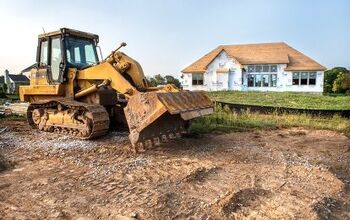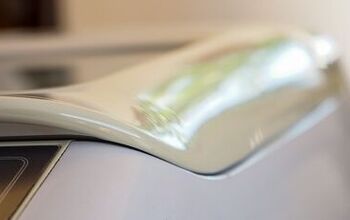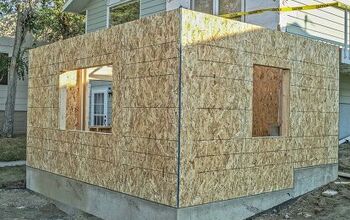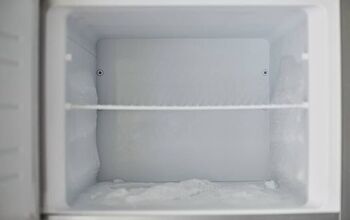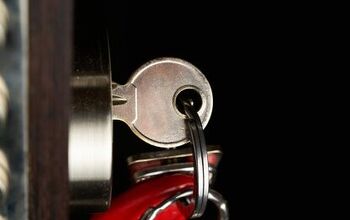Should You Run A Dehumidifier In The Winter?

Many homeowners use a dehumidifier throughout spring and summer to avoid uncomfortable, stuffy air. However, some people assume that dehumidifiers are only good at that time and simply put them away during the fall and winter. So, should you run a dehumidifier in the winter?
You should run a dehumidifier in the winter if the humidity level surpasses 50%. Ideally, the humidity level in your home should stay between 30% and 50% throughout winter, especially if you have asthma. It’s best to run a dehumidifier at night in the winter because as the dew point rises, it can unexpectedly make your home both cold and humid.
You can also lower the humidity in your house if you install weatherstripping and avoid taking overly hot showers. Follow along as we explore whether you should run a dehumidifier in the winter and highlight the pros and cons.
Should You Turn off A Dehumidifier In The Winter?
You should only turn off a dehumidifier in the winter if you turn the heat on or live in a climate with cold winters. The air is typically dry in the winter, which means your house won’t be nearly as humid as it is in spring or summer. However, you may want to run a dehumidifier in the winter if you live in an area with warm winters, especially if you have asthma.
The basement is the best place to run a dehumidifier throughout winter. Basements typically have higher humidity levels, and it may be necessary to turn on a dehumidifier if the air is stuffy and uncomfortable.
When Should You Use A Dehumidifier In The Winter?
You should use a dehumidifier in the winter if the humidity level goes above 50%. The best indoor humidity level for winter is between 30% to 50%. Anything above 50% can make your house feel stuffy, and that can be quite uncomfortable.
That said, many homeowners bring plants indoors during the fall and winter and require more humidity to sustain the plants. In that case, you may want to keep the humidity level at 60%. This may not be healthy for people with respiratory problems, however, so you may want to skip the plants this winter to keep the air in your home relatively dry.
How Long Should You Run A Dehumidifier?
You should run a dehumidifier for 12 hours if you want to maintain a consistent humidity level. Some people run their dehumidifiers all day during spring and summer, but that’s not necessary in the winter. The air is typically drier in the winter, which means you won’t need to use a dehumidifier as much.
That said, you can use a dehumidifier as long as you need to stay comfortable. For example, homeowners with asthma who live in stuffy houses may need to run their dehumidifiers all day.
How To Reduce Humidity During The Winter
Keep Interior Doors Open
One of the best ways to reduce humidity during the winter is to keep the doors open inside your home. Closing doors may guarantee privacy, but it will also make the room stuffier. The moisture in the air has nowhere to escape when you keep doors closed.
Luckily, you can avoid this if you simply keep the interior doors between the rooms in your house open. This will improve the airflow in your house and help rid the air of moisture. It will also make your home feel less cramped, and that is invaluable.
Run The AC
Your home’s air conditioner works similarly to a dehumidifier. Air conditioners remove both heat and humidity. That doesn’t mean you should keep your home cold during the winter.
The refrigerant in an air conditioner helps remove the moisture from the air. Simply set your air conditioner to a comfortable temperature where the fan will run without making the house too chilly.
Avoid Hot Showers
Hot showers are particularly comfortable during the winter when it’s cold outside. However, they will also quickly increase the humidity in your house. This is especially true if you have a small home without a lot of rooms.
The hot water increases the humidity in the air, and that can be a problem for people with respiratory problems and sensitive lungs. Make sure to run a fan in the bathroom if you must take a hot shower.
Leave the shower door and the bathroom door open after you take a shower, so the moisture in the air will quickly dissipate. It also helps to crack a window open to lower the humidity in your house in the winter, but only if it isn’t too cold outside.
Use Door Sweeps
Is there a big gap beneath your front or back door? If so, then that could explain why your house is so humid in the winter. This is more of a problem for people in climates with mild winters where it doesn’t get too cold.
That said, closing the gaps beneath your exterior doors can reduce humidity, lower your electric bill, and keep bugs out of the house. A door sweep is a simple form of weatherstripping. You can also use vinyl weatherstripping and even roll up old towels to place at the base of your doors to reduce humidity and keep bugs out.
Is It Better To Run A Dehumidifier During The Day Or At Night?
It is better to run a dehumidifier at night rather than during the day in most climates. The relative humidity level increases at night as the dew point rises. At night, the air fills with water vapor, and that’s why the grass is often wet in the morning.
This can lead to frost during the winter if the temperature drops below 32 degrees Fahrenheit. Your house may become humid at night during the winter when the dew point is high. Run a dehumidifier at night instead of during the day if your lungs are sensitive and you want to avoid discomfort.
Summing It Up
You should run a dehumidifier in the winter if you live in a climate with a high dew point at night. Dehumidifiers also help in the winter if you have respiratory problems, such as COPD and asthma. Otherwise, you can reduce the humidity in your home during the winter if you install door sweeps, run fans, and keep the doors in your home open to help circulate the air.
Related Guides:

Nick Durante is a professional writer with a primary focus on home improvement. When he is not writing about home improvement or taking on projects around the house, he likes to read and create art. He is always looking towards the newest trends in home improvement.
More by Nick Durante



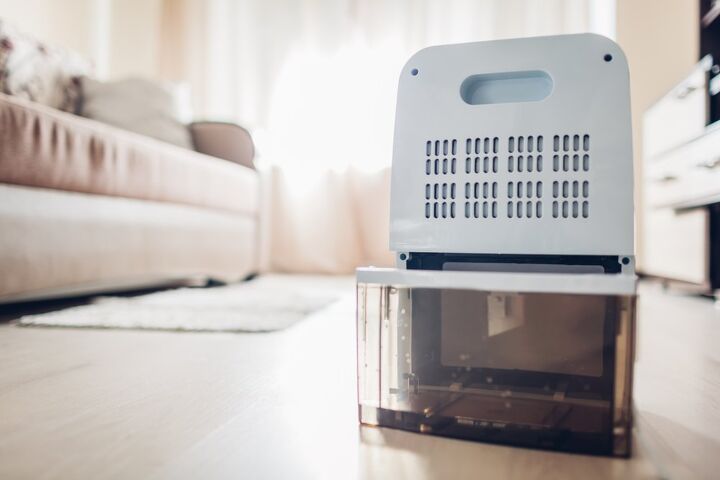








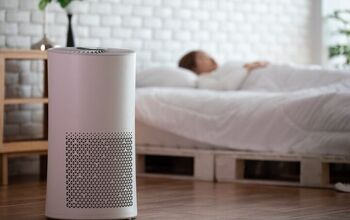
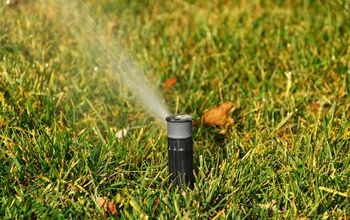
![The 5 Best Angle Grinders – [2022 Reviews & Buyer's Guide]](https://cdn-fastly.upgradedhome.com/media/2023/07/31/9071326/the-5-best-angle-grinders-2022-reviews-buyer-s-guide.jpg?size=350x220)

![How To Reset A Whirlpool Cabrio Washer [In 5 Easy Steps!]](https://cdn-fastly.upgradedhome.com/media/2023/07/31/9076531/how-to-reset-a-whirlpool-cabrio-washer-in-5-easy-steps.jpg?size=350x220)

